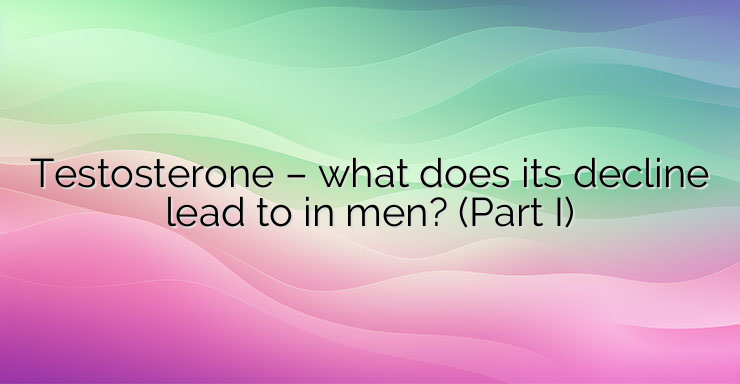Obesity is becoming an increasingly serious problem for both women and men. The way in which extra pounds are accumulated in the two sexes is different. Women usually accumulate fatty tissue on the thighs and buttocks, while men accumulate in the abdomen – the so-called. central obesity. What is the reason for the different type of obesity in the two sexes? It turns out that the main reason for the occurrence of the male type of obesity is the sex hormone testosterone. Most healthy men when young have a predominantly athletic figure – shoulders are wider than hips, muscles are evenly developed and there is very little excess fat. However, with age, the structure of the male body changes significantly, the so-called beer belly, muscle mass in the shoulder area decreases, the circumference of the hips and buttocks increases. The typical male figure begins to look like a female. To describe these problems, the term “age-related hypogonadism” is used – reduced secretion of the male sex hormone. The changes that occur in the male figure are not only responsible for lying on the sofa and drinking too much beer, but also for the changes occurring in the endocrine organs and, above all, in a change in the level of testosterone. Testosterone is the main male sex hormone (androgen) produced in the testicles. It determines the appearance of secondary sexual characteristics and regulates the function of the male genital organs. According to its chemical structure, the hormone is an anabolic steroid and for this reason it is responsible for maintaining muscle mass and burning fat. Testosterone levels begin to rise at the onset of puberty and peak between the ages of 25 and 30. After the age of 30, the level of testosterone in healthy men begins to decrease by 1-2% per year, and by the age of 80 it reaches 40% of the level at which the hormone was at the age of 25. With excess weight, increased blood pressure, diabetes mellitus, ischemic heart disease and other diseases, as well as with constant intake of certain drugs, the level of testosterone drops faster, which in turn further complicates the health condition. The level of testosterone regulates the function of practically all organs and systems in the male organism. It has been found that the life expectancy of men with low testosterone levels is significantly shorter, compared to their peers with normal levels of the hormone. In the last 10 years, medicine has changed its attitude towards fat tissue and it is currently seen as a kind of endocrine system, and obesity as a factor that has a negative impact on the metabolism of substances, but also on the synthesis of testosterone. All overweight men have been shown to have some degree of male sex hormone decline that cannot be corrected without treating the obesity. In the sequel: more about testosterone and what changes in its levels lead to


Leave a Reply